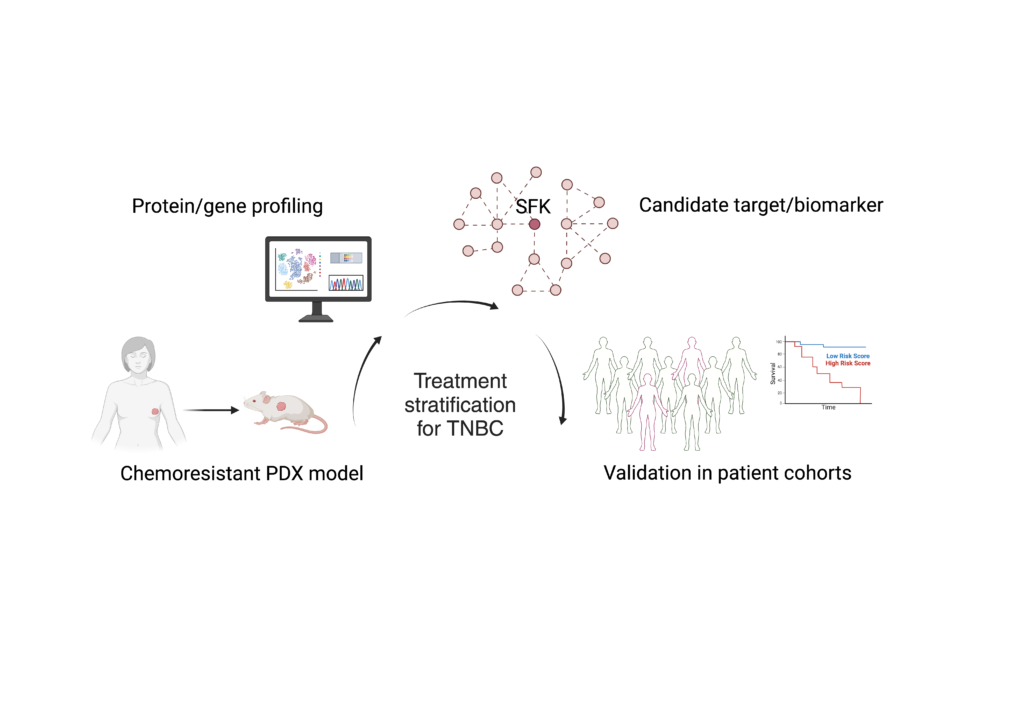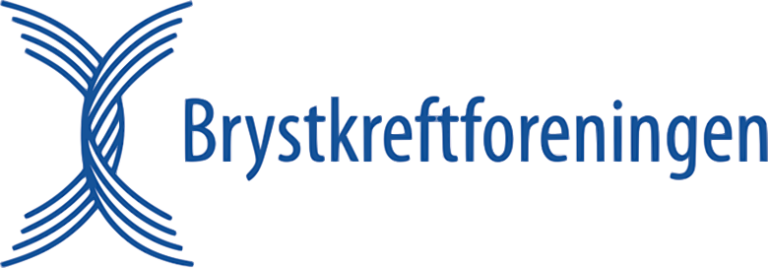Chemotherapy resistance is an important challenge in the clinical management of triple negative breast cancer. Thus, understanding the tumor molecular pathways that are associated with treatment resistance can help find targets for the next-line of treatment as well as identifying patient sub-groups that could benefit from this type of treatment.
The work of Dr. Eivind Valen Egeland and his colleagues was recently published in the British Journal of Cancer, where they suggest proteins in the SRC family kinases (SFK), as a therapeutic target in a group of triple negative breast cancer patients with resistance to chemotherapy. Egeland et al. used patiend-derived xenografts (PDX) models in mice, which represent chemoresistant and chemosensitive tumors, and characterized them on gene and protein level. They discovered that resistant tumors had increased activity of SFK signalling, which plays a crucial role for the cell’s growth and survival. Treatment with inhibitors of this pathway was more effective in chemoresistant tumors compared to the chemosensitive tumors, highliting the imporance of this pathway in the resistant tumors.
These observations were also validated in patient cohorts, where SFK singalling was increased in a sub-group of chemoresistant patients after neoadjuvant treatment and in metastatic patients with fast disease progression. Considering the results from this study, these patients might be candidates for treatment with SFK inhibitors in the future.
This study was supported by Research Council of Norway (Norges Forskningsråd), Norwegian Cancer Society (Kreftforeningen), South-East Norway Regional Health Authorities (Helse Sør-Øst), and from the RESCUER and SECRET-ITN projects that were funded by European Union’s Horizon 2020.

















